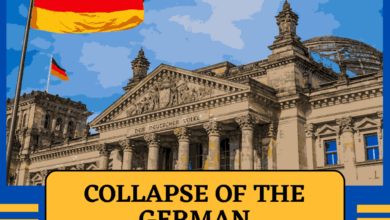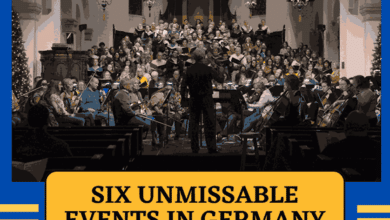German Holiday Traditions: Brückentag, Fenstertag, and Zwickeltag Explained
German Holiday Traditions: Brückentag, Fenstertag, and Zwickeltag Explained
Brückentag, Fenstertag, or Zwickeltag? All the German words for getting longer holiday weekends. German has more than one special word for the practice of taking a day off to make the most out of public holidays that fall close to a weekend. But which word should you use? That depends a bit on where you are. Here in this article we will delve into German Holiday Traditions and will see Brückentag, Fenstertag, or Zwickeltag explained.
People in German-speaking countries take their holidays seriously, and the language reflects that. If a holiday falls around a weekend, German speakers might take a day – or a couple of days – off work to bridge the gap between the holiday and the next weekend. If a public holiday falls on a Tuesday or Thursday, they might take the corresponding Monday or Friday off work to get a four-day weekend by using up just one day of vacation time.
In German-speaking countries, it’s also common to book time off in the four days before Good Friday or the four days after Easter Monday to get almost ten days off by only using up four vacation days. Easter also presents a great opportunity for some people to use eight vacation days—four on each side of the Easter weekend if they have Friday and Monday off—to get a full 16-day holiday.
Whether it’s Brückentag — or “bridge day” — Fenstertag, or “window day” — or even Zwickeltag (more on that below), the fact that there are multiple special German words for this practice should tell you how seriously people in German-speaking countries take this tradition.
Bridge or Window?
- Brückentag is best used in both Germany and in German-speaking Switzerland, but not typically in Austria. Some German speakers in these countries will use it a bit more restrictively – and keep its meaning purely as a “bridge” day between the weekend and a public holiday that falls in the middle of the week rather than on a Friday or Monday. Because Easter falls on both Friday and Monday, certain German speakers won’t describe extra days off around Easter as “bridge days.”
- The latest such opportunity to use such a bridge day is on May 10th for Ascension Day – a public holiday in both Germany and Switzerland that falls on a Thursday. Taking the Friday off the next day would count as a Brückentag. No one knows precisely why, but Brückentag hasn’t taken off in Austria, with German speakers in the alpine country using Fenstertag. The “window day,” however, means essentially the same thing – and might refer to “open windows” in the middle of the week. While many Austrian German speakers are likely to understand what you mean if you use Brückentag there, using Fenstertag is at least likely to demonstrate that you’re familiar with some Austrian lingo.
What Exactly is Zwickeltag?
- While Fenstertag works in much of Austria – and certainly in Vienna – one Austrian region has yet another word of its own. As a Zwickel describes a wedge-shaped piece that holds together things coming together at a focal point — for example, fabric at the crotch of a pair of jeans — Zwickeltag is used in Upper Austria.
- The region, with its capital in Linz and sharing a border with the German state of Bavaria, uses its own word for the beloved holiday tradition, although people there are still likely to understand either Brückentag or Fenstertag. Zwickeltag is quite specific to Upper Austria though, with perhaps even native Austrians from other parts of the country not always aware of it — to say nothing of either Germans or Swiss Germans.
Examples
The “bridge day” words are pretty easy to use in a sentence, as they’re standard nouns, with the singular form being masculine. You might ask someone “Are you taking the bridge days off at Easter?” In Germany and German-speaking Switzerland, you would say:
-
- Nimmst du sich die Brückentage um Ostern frei?
Or in Austria you might ask someone “Are you taking a bridge day off for Easter?” Here you would say:
-
- Nimmst du sich am Ostern einen Fenstertag frei?
Or in Upper Austria, you would just switch out the word like so:
-
- Nimmst du sich am Ostern einen Zwickeltag frei?
Read More at How to Abroad
Changes in Germany’s Long distance Train services for 2024
How to Minimize Salary Deductions While Working in Germany?
Want to study in Germany? How To Abroad can help you achieve your academic dreams.









